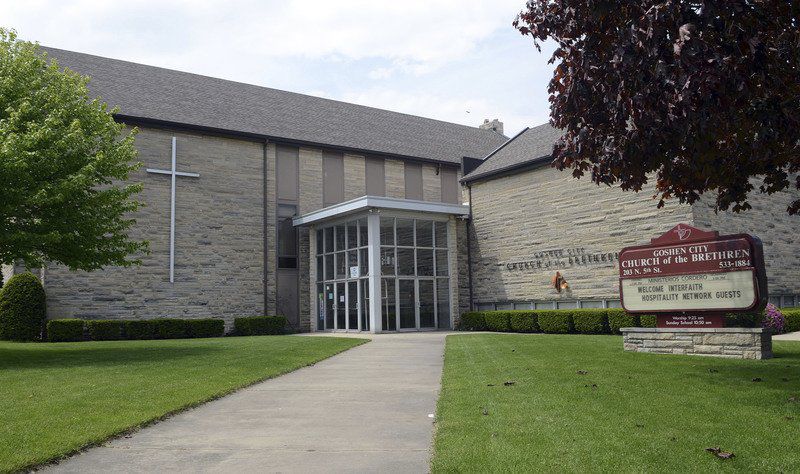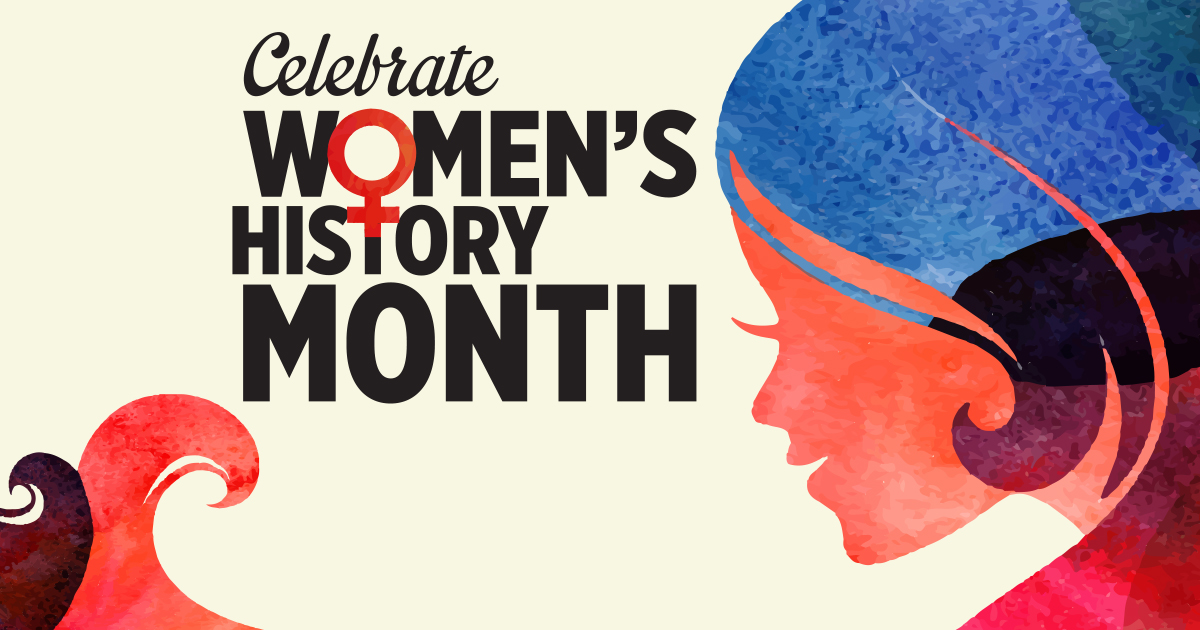This post is part five of a five-part series. Parts two-five are published on our blog. Part one can be viewed at https://www.facebook.com/BrethrenLifeAndThought/videos/1430331587076140/.
CP: Introduce yourself. Location. Current Congregation. (If not currently at a Brethren congregation, where do you worship now? What is your “home” CoB?) Occupation. Age. Did you know March is Women’s Month? Either way, what does Women’s Month mean to you? How do you understand your identity as a minister (priesthood of all believers)?
 MM: My name is Madalyn Metzger. I’m 40 years old and live in Bristol, Indiana, and am a member of Goshen (Indiana) City Church of the Brethren. I’m the Vice President of Marketing at Everence Financial, a faith-based comprehensive financial services company that is a ministry of Mennonite Church USA and other Anabaptist-related churches.
MM: My name is Madalyn Metzger. I’m 40 years old and live in Bristol, Indiana, and am a member of Goshen (Indiana) City Church of the Brethren. I’m the Vice President of Marketing at Everence Financial, a faith-based comprehensive financial services company that is a ministry of Mennonite Church USA and other Anabaptist-related churches.
I did know that March is Women’s Month, and I wish more people, organizations, and churches would actively observe it. Not only is it an opportunity for all of us to recognize the courage and achievements of women in our history and lives, but it’s also a time to acknowledge and address the barriers that so many women still face in our national and international society.
I have always valued the theological principle of the priesthood of all believers. The belief that all believers – men and women alike – are called to participate in the life and work of the church holds deep meaning for me. It was an example set in 1708 when the first group that became known as the Schwarzenau Brethren – three women and five men – practiced the Believer’s baptism and used a lottery system to choose who would baptize one another in the Eder River. They didn’t give preference or deference to the men as the early leaders of our denomination. Instead, they shared that vision and that responsibility.
CP: Is it odd to identify with a group that is centered on the male form of the name? In what ways does it matter? In what ways does it not matter?
MM: That’s a really interesting question, and it’s one that I’ve gone back and forth on. I think our name does, at times, create some confusion and perhaps some symbolic division for us as a faith community – especially to those who aren’t familiar with our denomination. And, when we wrestle with issues of power and privilege within our denomination, the name certainly doesn’t do us any linguistic favors. On the other hand, the term “brethren” is also a familial one, which also communicates our history and intention to be a faith community, together.
CP: What opportunities does being a Brethren woman provide you? Are there ways it restricts you?
MM: I think my Brethren upbringing and faith has given me a perspective that is unique and different from others – that “third way” of living peacefully and in community with each other. I think it has helped me think for myself, look at things from a different angle, and try to find ways to build up the body rather than tear it down. I don’t think being a Brethren woman has restricted me. In fact, I think the opposite – being a Brethren woman has empowered me.
CP: Name a woman, Brethren or otherwise, who has inspired you and encouraged your spiritual growth.
MM: I’m inspired every day by Brethren and Mennonite women… Women like Carrie Eikler, Gimbiya Kettering, Bekah Houff, Hannah Heinzekehr, Sue Park Hur, Wendy McFadden, Becky Ball Miller, Mim Shirk, and Karen Lehman. These women are living out their faith in their professional and family lives, in their friendships and relationships. Living and working alongside them encourages me all the time.
CP: How can our denomination better encourage the gifts of women?
 MM: Today and for centuries past, our society and the church have struggled with – and sometimes been complicit in – the subjugation of the voices of women and others who are marginalized. Behaviors, beliefs, and attitudes that perpetuate this suppression – whether intentional or unintentional – separate Christians from each other, and from God.
MM: Today and for centuries past, our society and the church have struggled with – and sometimes been complicit in – the subjugation of the voices of women and others who are marginalized. Behaviors, beliefs, and attitudes that perpetuate this suppression – whether intentional or unintentional – separate Christians from each other, and from God.
I believe that as Christians, this suppression is counter to our understanding of the will of God for the church and the world. And as Anabaptists, these injustices run counter to who we are as people called to live together in community, in service to each other and to God. Over the years, we’ve learned this, and we’ve taken steps to fix this. But yet, the pain and the suppression still exist for many in the body.
CP: How do you sustain yourself in the midst of those who might discredit or not listen to your voice because you are a woman?
MM: It’s frustrating when it happens. I’m grateful and thankful for the love and support I get from others in the church – men and women alike – who want to hear the diversity of voices in our denomination and communities.
CP: How do you encourage or build up other women? What are ways that we can intentionally mentor and call young women into ministry?
MM: This is so important. I’m so grateful for the women mentors I’ve had in my faith and professional circles – women who have reached out to help me grow. And I feel called to support and help other women in their growth and their journeys, as well. I’m part of a group of Anabaptist women who talk regularly about our spiritual and professional lives, and I’ve found that to be extremely fulfilling and supportive. I’ve also helped form, with my friend Hannah Heinzekehr, a local group of women who work in marketing, communications, and development for faith-based organizations. And I also enjoy helping women who are younger than me or earlier in their careers than me to find their calling and their passion in their work.
CP: How do you lovingly respond to prejudice in and outside the Church?
MM: I think relationship building is key. When we’re in relationship with each other, it’s harder to vilify one another or put each other in a box. By being in relationship, we can then have difficult conversations that help us understand each other’s perspectives.
But, despite the size of our small denomination, it’s impossible for all of us to know each other at that level when we come into contact. And so, barring having that established relationship, it’s important for us to give each other grace – to remember that all of us are shaped by our experiences, but we don’t wear those experiences on our sleeves. We need to be willing to listen to each other and to dig deeper before we make conclusions about one another.
CP: How do you set boundaries with physical touch with men (or others if not heterosexual)?
MM: I usually try to set boundaries through behavioral cues. For example, if I’m in a situation where I’d rather not give a hug, I will stick my hand out for a handshake first.
Although it’s not commonly practiced in all Brethren circles today, historically the Brethren have practiced the “passing of the peace” by sharing the holy kiss with one another. I think that’s important context for a discussion about physical boundaries in our denomination as a whole.
CP: You shared some demographic info in question one. Where does your sex or gender identity fit into the broader picture of who you are? Of your many identities, is being a woman primary? Why or why not?
 MM: I think that being a woman – and being a biracial and intercultural woman – is a major part of my identity. I don’t know if I would say that my female identity is primary over other aspects of my identity, though. All of them make up who I am, as a person made in God’s image.
MM: I think that being a woman – and being a biracial and intercultural woman – is a major part of my identity. I don’t know if I would say that my female identity is primary over other aspects of my identity, though. All of them make up who I am, as a person made in God’s image.
All of us live lives and have perspectives that are outside our own experiences, and when we share those with each other, we are made better and stronger collectively. And I truly believe that we can embrace both our differences and the common values that bring us together as the body of Christ.
Image Credits: Goshen News and Sassafras Marketing

